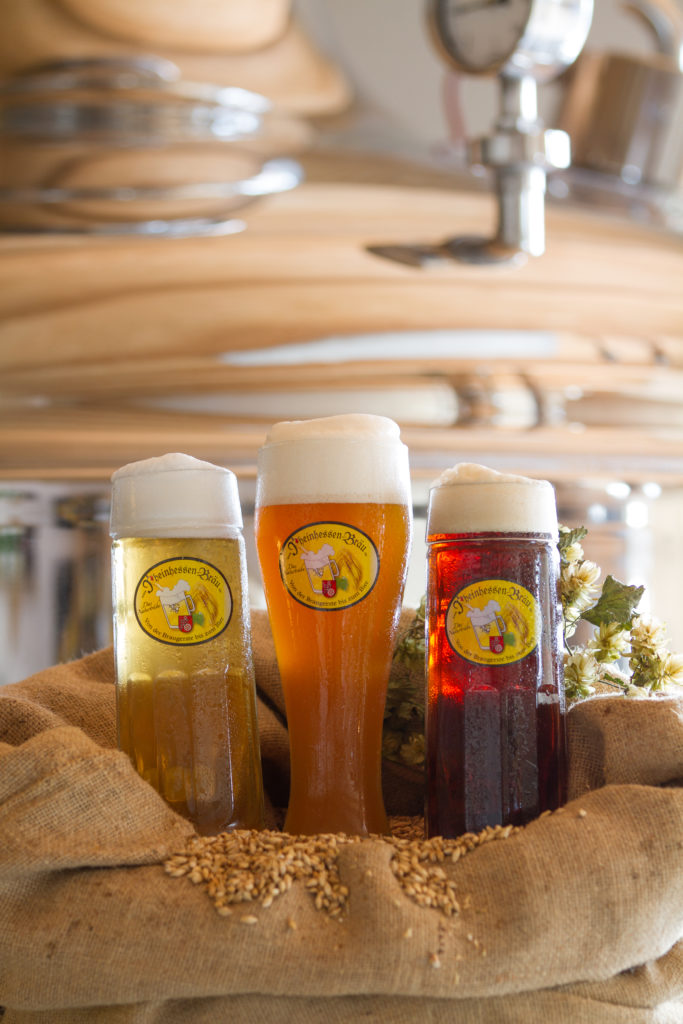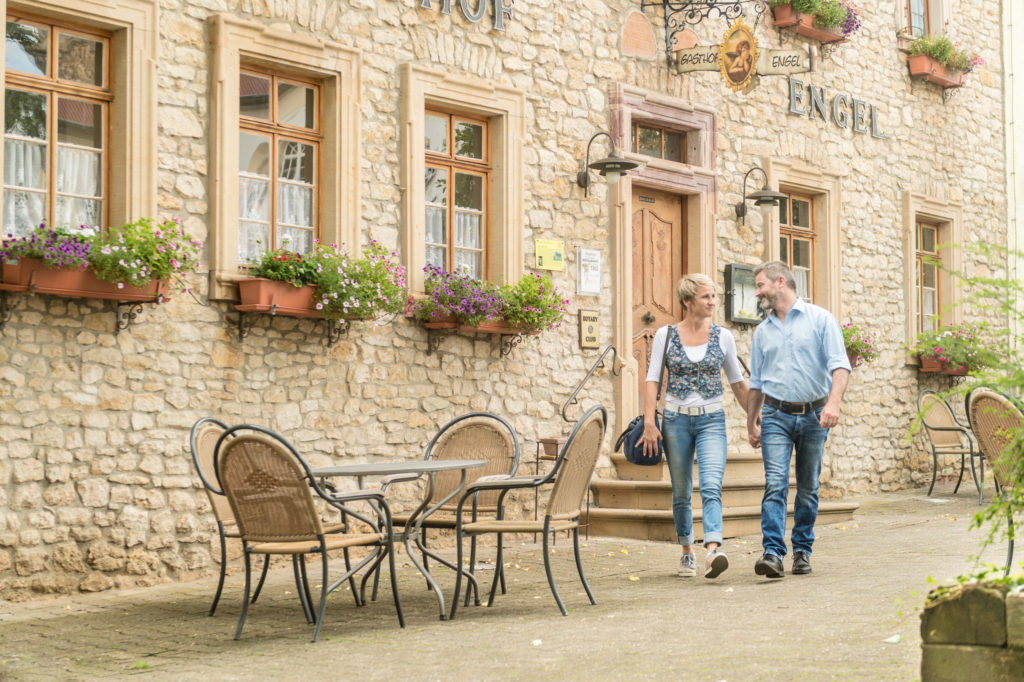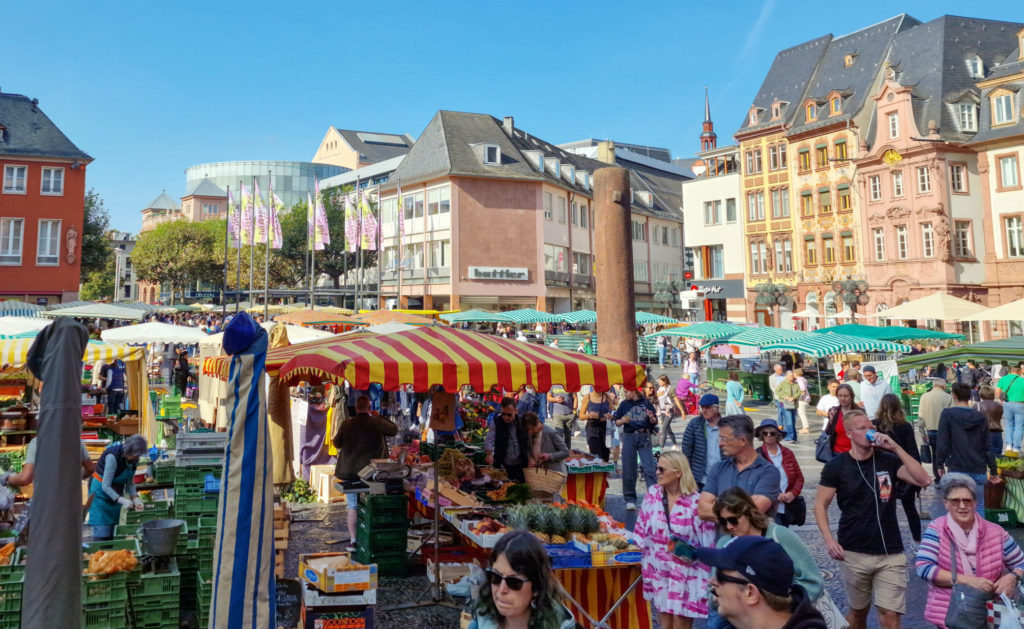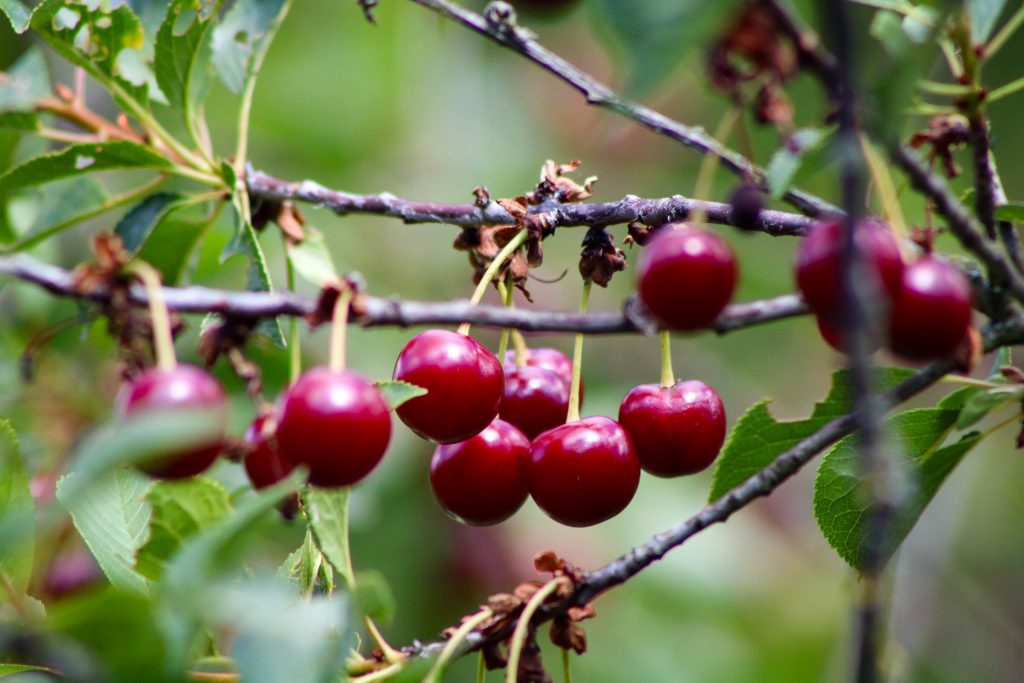
Along the trail there are small manufactories that offer regional products from their own production for consumption and sale. Whether vinegar, oil, honey or cherries - no wishes remain unfulfilled!
Rheinhessen vinegar in the Kaltenthaler Vinegar Manufactory
From the Worms train station, an approximately four-and-a-half-kilometer-long access path leads to Herrnsheim Castle, the starting point of the RheinTerrassenWeg. It first follows the babbling Pfrimm, a tributary of the Rhine, and then runs along an old railroad track to Herrnsheim. Before we marvel at the castle and its large park, we make a detour to the Kaltenthaler Vinegar Manufactory.

Frank Kaltenthaler is a trained master winemaker and produces certified organic wines. But that is not his only specialty. He ventured into vinegar production many years ago on a whim and now offers an impressive range of regional vinegars in his lovingly furnished store. It ranges from classic wine and fruit vinegars to fine balsamic vinegars and creative aperitif vinegars, which we particularly enjoy.

In his hallowed halls, Frank Kaltenthaler reveals that vinegar takes just as much effort to produce as wine - contrary to the general belief that wine eventually turns into vinegar anyway. The vinegar specialist taught himself this craft as a "balance to his profession as a winemaker. He shows us self-built fermenters and we sniff the intense vinegar aromas in the fermentation and ripening room.
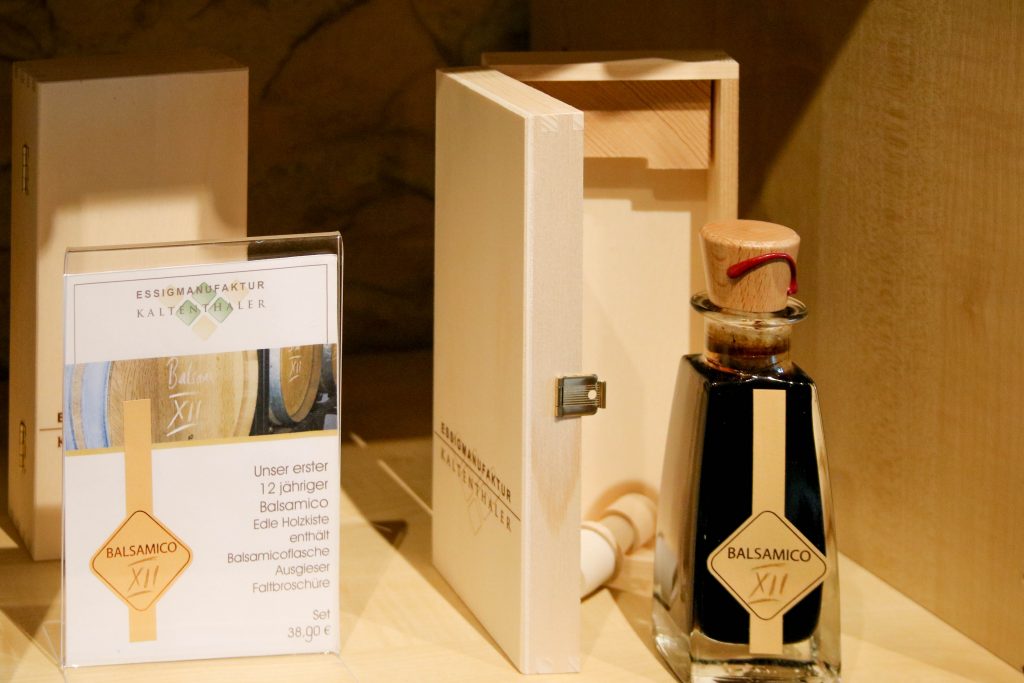
Frank Kaltenthaler is particularly enthusiastic about his traditional balsamic vinegars. In Modena, he was able to look over the shoulder of the famous "Acetaia del Balsamico the production of the famous "Acetaia del Balsamico" and experience the vinegar culture of the small experience. Inspired by this, his vinegar factory now also produces different vintages of the noble balsamic vinegar. When in a few years the first 25-year-old Balsamico will be ready, another milestone will have been reached. We are excited!
Tip: If you also want to take a look behind the scenes of the vinegar factory, you can visit the "Experience Vinegar Manufactory" book
Rheinhessen oil in the Wonnegau oil mill
No vinegar without - that's right: oil. How good that the Wonnegau oil mill is also located in Herrnsheim. To be more precise, it has been housed in the remise of Herrnsheim Castle for over 10 years. Directly at the starting point of the RheinTerrassenWeg.

We enter the small store, which smells so wonderfully of the wild herb oil that is being bottled. Here you can buy high-quality, cold-pressed oils that Thomas Steger, a certified biologist, produces himself. Like the popular walnut oil, with which everything began in 1999. At that time, he was a real exotic in the field of cold-pressed oils, recalls the oil miller. Today, they are appreciated everywhere for their taste and health benefits.

His expertise as a biologist, whether in the field of botany (ingredients) or microbiology (shelf life), has helped Thomas Steger to grow his business "close to nature and close to people. The nuts for the walnut oil, for example, come from private individuals in the region who have walnut trees in their gardens. For the complex cracking and selection of the nut kernels, Thomas Steger works with workshops run by Lebenshilfe and Caritas.

In addition to oils, other specialties such as pesto, lemon cream or spice blends can be purchased at the oil mill. There is a special story behind the spice blend "Mariposa". A customer once brought back a spice blend from her vacation in India that found uncanny appeal in her kitchen. When the souvenir threatened to run out, she turned to the oil mill with a request for a new blend. Since then, "Mariposa" has been an absolute favorite product, without which many customers could no longer cook, reveals Thomas Steger.
Rheinhessen honey from the Löwenstein apiary
After about 24 varied kilometers on the RheinTerrassenWeg, we reach the wine village of Mettenheim. Here we visit the Beekeeping Löwenstein.
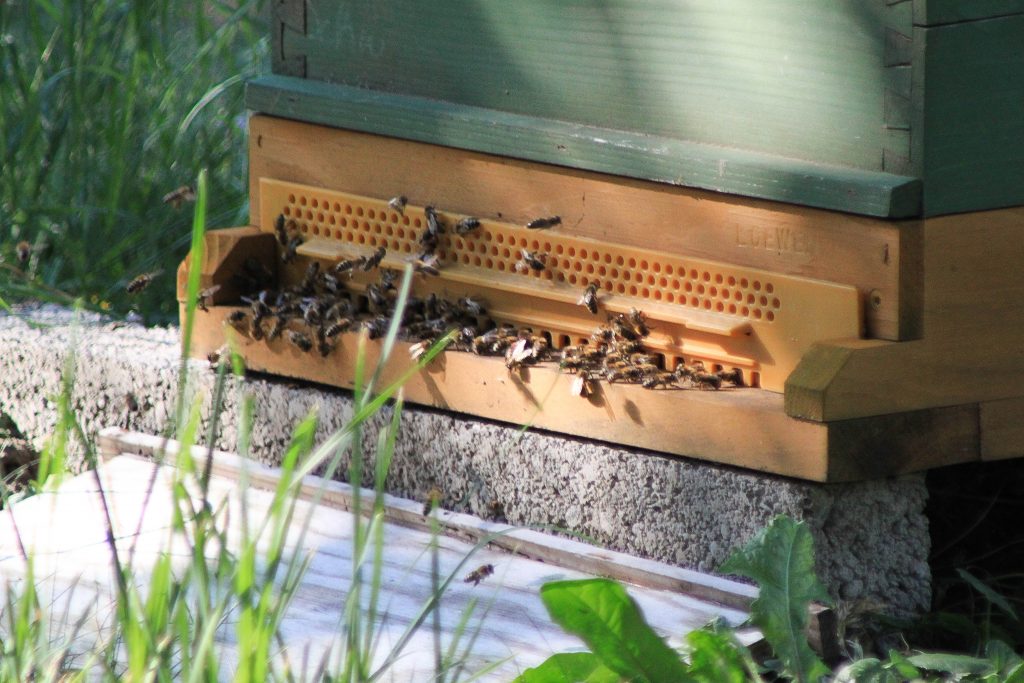
Doris Löwenstein found her way to beekeeping in a roundabout way. About ten years ago, she was looking for a career change and discovered her love of honeybees. Initially, she took over bee colonies from her father-in-law, and later others from his friend. She learned the theory of beekeeping and honey production at the Bee Institute in Mayen, while learning the practical side at home.

In the meantime, Doris Löwenstein is a recognized performance breeder of queens and owns about 50 bee colonies. Beekeepers with more than 20 colonies are rare in Germany. Most of her colonies are in rented gardens, but the beekeeper regularly travels with twelve of them. Sometimes to the rapeseed field near Alzey, sometimes to the acacia trees in Maxdorf. Her single-variety honeys have a particularly intense flavor.

We taste the chestnut honey, which is really unique. Doris Löwenstein tells us that its production is always somewhat difficult. If bees had a choice, they would rather fly to other flowers. But when honey is produced from chestnut blossoms, it is something very special. We can only confirm that!
Rheinhessen cherries at Amorella Kirsch
The last stage of the RheinTerrassenWeg takes us from Bodenheim to Mainz. And since we are big cherry lovers, we absolutely must Amorella cherry pay a visit to the Chausseehaus.

Katja and Fritz Mossel welcome us to their farm, which has been in the family since has been in the family since 1822 and was once a customs and horse changing station. One of the oldest vines in Rheinhessen has been growing here for 140 years. Thereby today is not primarily about wine, but rather about cherries. The name "Amorella" already reveals that the love for the red fruits is very is capitalized here.
The Mossel family offers an impressive assortment of of cherry products made in-house. From handmade cherry jam to air-dried sour cherries air-dried sour cherries to fruity cherry sparkling wine and recently a cherry gin a cherry gin, there is really nothing left to be desired. The focus is on the cherry dessert wine, with which everything began in 1948. Fritz Mossel's grandfather produced it according to his own recipe and this has not changed since then.

All fruity products are made from the yield of the about 2000 cherry trees owned by the family. "We want the cherry to be present in all products in terms of taste," reveals Fritz Mossel. We have succeeded in this! We slowly taste our way through the entire product range, which is constantly being expanded - "because it's so much fun." We are curious what the future holds in store for tart and sweet creations.

